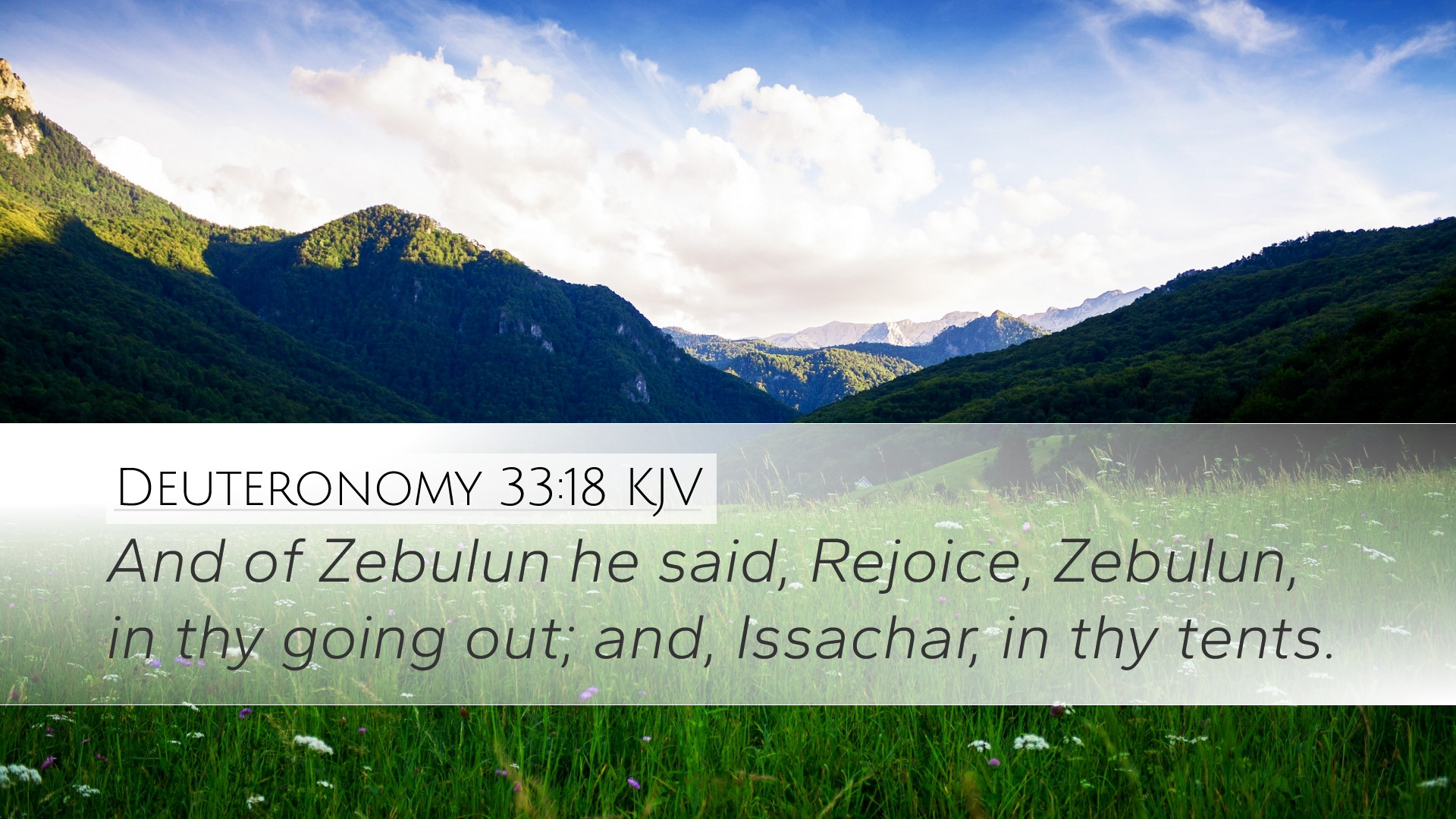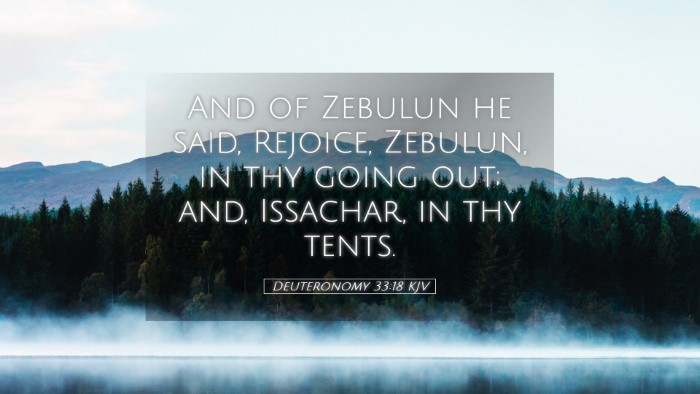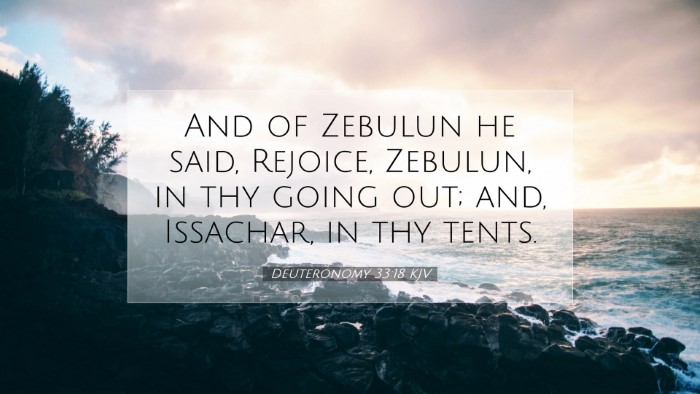Commentary on Deuteronomy 33:18
Bible Verse: "And of Zebulun he said, Rejoice, Zebulun, in thy going out; and, Issachar, in thy tents."
Introduction
The verse of Deuteronomy 33:18 addresses the tribes of Zebulun and Issachar as part of the blessings pronounced by Moses before his death. This passage not only serves as a prophetic statement regarding the future of these tribes but also highlights themes of joy, labor, and the significance of community life. Drawing from esteemed public domain commentaries, we shall explore the multifaceted layers of interpretation surrounding this verse.
Significance of Zebulun and Issachar
Matthew Henry emphasizes the characteristics and roles of these two tribes within Israel's history. Zebulun, known for its maritime activities, symbolized commerce and trade, while Issachar was recognized for its agricultural pursuits and scholarly attributes. Together, they illustrate a complementary relationship among the tribes of Israel, fostering both economic and intellectual growth.
The Call to Rejoice
In the exhortation to rejoice found in the verse, Albert Barnes notes the importance of celebrating the unique contributions of each tribe. Rejoicing in one's "going out" signifies an acknowledgment of the endeavors and productive activities undertaken by Zebulun, who engaged in trade and navigation. This invitation to joy also speaks to the fulfillment that comes from one's labor and the blessings of community.
The Role of Issachar
Adam Clarke sheds light on Issachar's role, emphasizing the value of tents as a representation of stability and nurturing community life. The tents symbolize the homemaking and educational qualities attributed to Issachar, emphasizing the importance of family and gathering in faith. This duality of spiritual and physical labor showcases the interdependence of both tribes and their contributions to Israelite society.
Theological Implications
The blessings recounted in this passage have broader theological implications, particularly in understanding how God calls different people and communities to various roles in His plan. Henry expounds on the idea that every labor, whether in trade or agriculture, is essential in God's economy, underscoring the message that all vocations can be sacred when performed unto Him.
Contemporary Application
For modern readers—pastors, students, and theologians—the message of Deuteronomy 33:18 is profound. It encourages us to appreciate the diversity of gifts and callings within the community of faith. Barnes reiterates that the joy found in fulfilling one's vocation aligns with God's purposes for each individual, thus affirming that whether one is called to spiritual leadership, academia, or industry, each role contributes to the greater tapestry of God's kingdom.
Conclusion
The verse from Deuteronomy captures a rich narrative that extends beyond mere historical record; it serves as a lens through which we can examine our communal identities and vocations today. As Clarke effectively encapsulates, there is a profound beauty in how God orchestrates the lives of His people, creating a cohesive unit that thrives on diversity and unity. This passage beckons us to reflect on our own contributions to the community, urging us to rejoice in the paths carved before us by God's providence.


